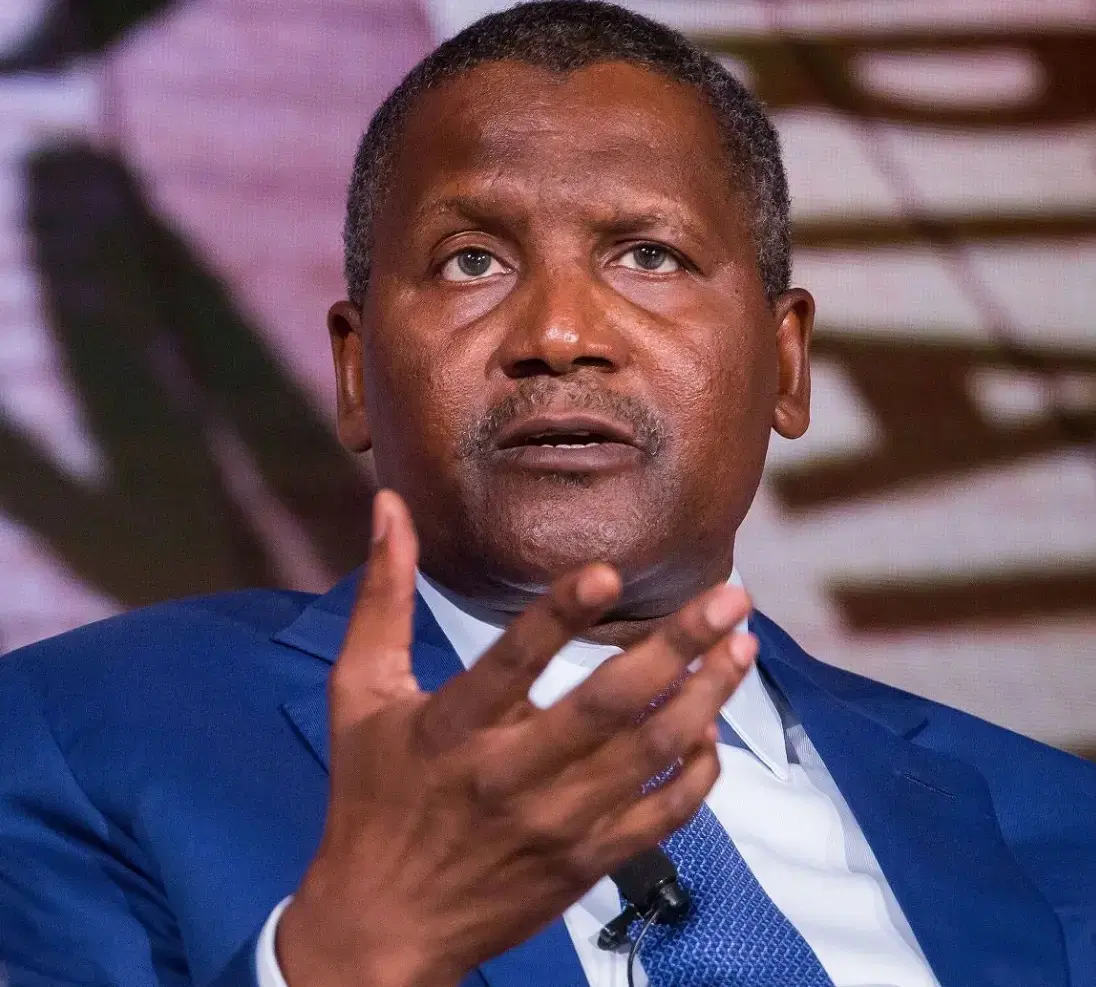President of Dangote Industries Limited, Aliko Dangote, has dismissed accusations that his companies monopolise key sectors of Nigeria’s economy.
Defending his business practices, he argued that Africa must prioritise industrialisation and resist becoming a dumping ground for foreign goods.
For years, the Dangote Group has faced criticism for allegedly using its dominant position to shut out competition—scrutiny that has only intensified since the launch of its $20 billion oil refinery.
Dangote, however, insists his success is the result of strategic investment and entrepreneurship, not special treatment or restrictive policies.
In a feature by Bloomberg on Thursday, it was alleged that some of Dangote’s greatest successes occurred in sectors where imports are banned or restricted, including sugar and cement.
The report recalled that in 2007, then-US Consul General Brian Browne cited criticisms of Dangote’s practices in a private cable published by WikiLeaks:
“To detractors, he is a predator using connections in a corrupt political economy to tilt the playing field in his favour and sideline potential competition. It is no coincidence that many products on Nigeria’s import ban lists are items in which Dangote has major interests,” Browne wrote.
Dangote, who holds Browne in high regard, countered that imports of the products in question were not banned at the time. He argued that he simply capitalised on opportunities that others failed to exploit.
“If you are going to call first movers into business monopolists, then you will never establish a manufacturing base, or you’ll never establish anything that you call a country,” Dangote said.
He admitted the stress of getting the refinery operational, noting the challenges posed by Nigeria’s limited public services.
“Right from the beginning of building the refinery, we realised that nobody could provide us with any service. You have to provide almost everything by yourself,” Dangote said. Reflecting on the ordeal, he added, “If I knew what I was going to go through, I wouldn’t have tried it.”
According to the Bloomberg Billionaires Index, Dangote’s net worth has risen by about $1 billion over the past three months to $28 billion, buoyed by the refinery’s ramp-up, which has made Nigeria a net exporter of petroleum products for the first time in three decades. Dangote denied any wrongdoing, including preferential foreign exchange access in building the refinery.
“We have made our money clean. We are not part of the corruption. We are part of the problem-solving,” he said.
Dangote Industries said it is at the forefront of Nigeria’s industrialisation. Vice President, Devakumar Edwin, overseeing the refinery, said, “This refinery is going to change the whole face of business in the country. Instead of exporting the raw material, we are exporting the value product.”
Dangote’s business journey began in the 1970s in Kano with a $3,000 loan from his uncle, trading in cotton, cashew nuts, cocoa, and sesame seeds. Within a few years, he moved into transportation, importing cement and other products.
He recalled, “I was making about N7,000 to N8,000 per day”, allowing him to buy his first Mercedes for N5,100.
In September 2024, Dangote Industries requested a Federal High Court injunction to halt oil imports, citing the refinery’s ability to meet domestic fuel demand.
The suit named NNPC Ltd., the Nigerian Midstream and Downstream Petroleum Regulatory Authority, and several oil companies as defendants. Farouk Ahmed, the agency’s head, described the move as “not good for the nation” and potentially fostering a monopoly.
The company withdrew the suit on 28 July, stating: “We are amicably resolving the issues” and preferred to avoid litigation, Edwin told Bloomberg.
He added that the government relationship is now improving, with President Bola Tinubu recently visiting the refinery.
Edwin emphasised the need to protect domestic industries, drawing parallels with strategies in the US and China: “These governments are trying to protect their industries. All we are saying is, ‘Hey, guys, do the same.’ Otherwise, we’ll still be exporting raw material, importing, adding to somebody else’s GDP, creating employment for somebody else.”
